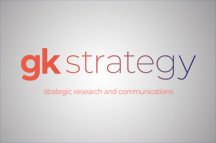Research and innovation is a priority for NHS. With demand for health services rising, deploying new technology and treatments is seen by NHS leaders and government as they key to improving productivity and standards of care in the health service. It’s therefore no surprise that research and innovation was a key focus of the NHS Long Term Plan. While there is already a wide spread recognition of the scale of R&D taking place across academia, industry and in healthcare services, the greater challenge in the NHS is adoption, and particularly the spread, of innovation. To benefit from this policy agenda, MedTech and pharma companies need to rethink how they approach engaging with the National Institute for Health and Care Excellence (NICE).
The value of NICE guidance
NICE’s role is to improve health outcomes through publishing evidence-based guidance and advice, both for the holistic management of a condition and specific medical technologies to be administered under certain conditions. The latter covers both pharmaceutical products seeking a positive cost-effectiveness approval for use in the NHS, to medical devices, including MedTech, diagnostics and – increasingly – digital solutions. Securing a positive appraisal is of course crucial to pharma to accessing the NHS (although a positive decision from NICE hasn’t always meant to instant access to the whole NHS market). NHS England now plans to significantly increase the number of NICE evaluations for MedTech products, giving greater scope for assessment of digital products in particular.
For organisations developing innovations to improve healthcare, engaging with NICE is not just an issue for market access but market reach. As part of their efforts to reduce unwarranted variation in care, NHS England and NHS Improvement want to increasingly standardise care. NICE guidance and approval will facilitate adoption, but it will also play a greater role in facilitating more consistent spread. While local sales reps will still have an important role to play engaging trusts on a local basis, ensuring innovations are recommended in centralised guidance will take on greater importance to sales and marketing as means to unlocking the wider market. Therefore, companies developing both pharmaceutical and technological innovations for the NHS should re-consider how they approach NICE assessments and guidance development to ensure the best chances of positive recommendations.
Engaging with assessment processes
When approaching the NICE assessment process, companies should always bring to bear as much robust evidence as possible. Whilst it is rightly an evidence-based process, effective communication of evidence is crucial to enabling informed decision-making. Ensuring relevant stakeholders are informed about the process, communicating the evidence, and mobilising advocates can enhance the evaluation process.
Underlying this is a need for messaging which speaks to NHS priorities, demonstrating how treatments and technology can deliver national policy aspirations, from patient safety to combatting antimicrobial resistance. For guidance on particular conditions, it is important to engage to ensure the appropriate scope at an early stage to ensure a breadth of solutions are considered.
Whilst NICE has become increasingly resistant to parliamentary pressure, political engagement should not be overlooked as a strategy. Deciding what treatment options should be made available on the NHS is inherently a politically sensitive subject. The high-profile case of Orkambi is a case in point, with pressure from Parliament for its approval, while NICE’s process to approving treatments for rare disease has come under scrutiny. However, effective engagement should focus primarily on mobilising stakeholders behind the scenes to come to a solution rather than ‘going nuclear’ with a high publicity campaign.
Unlocking potential
Taking a strategic approach to the development of NICE evaluations and guidance will yield greater results. NHS England has pledged that the “best products” that are ‘ready for spread’ across the NHS” – i.e. those which have been assessed as cost-effective – “will be given individualised support to increase adoption”. Uptake will be accelerated through a new MedTech funding mandate for health tech products, other than pharmaceuticals, but only for these which have been assessed by NICE and shown to reduce costs for the NHS. Alongside this is a new NICE-run Accelerated Access Pathway to speed-up adoption of chosen “breakthrough products”. New NICE now publishes “Pathways”, flowcharts which bring together all NICE evidence on a topic, signposting guidance on tools, approaches and treatments alongside information on conditions, is intended to increase the impact of NICE guidance.
Conclusion
Taking a strategic approach to engaging with NICE can unlock potential for rapid uptake across the NHS: crafting tailored messaging, knowing and mobilising your stakeholders and engaging with programmes to accelerate adoption and spread. For companies developing innovate new treatments and technology, ensuring you speak to NHS priorities and bring key opinion leads with you should be an essential part of the assessment process. However, whilst NICE guidance and evaluations have immense value in themselves, do not look at this as the end of the process. Best practice, as defined by NICE, can be spread across the NHS, through tools such as the GIRFT programme, the Academic Health Sciences Networks (AHSNs), and increasingly though locally Integrated Care Systems (ICSs). With the right strategy in place, proactive engagement to use these levers can pay dividends.
by Edward Jones














